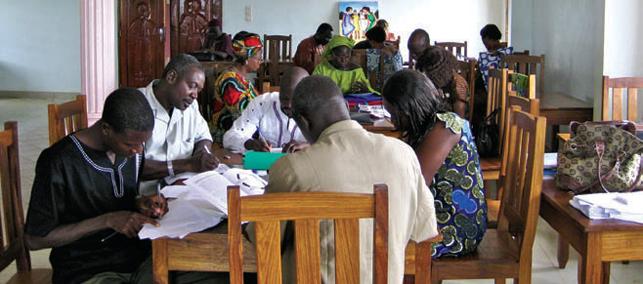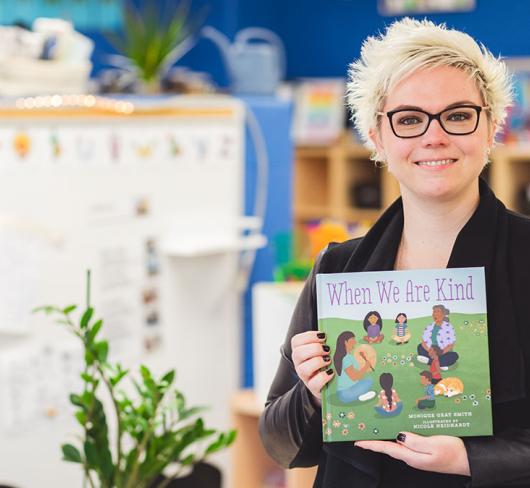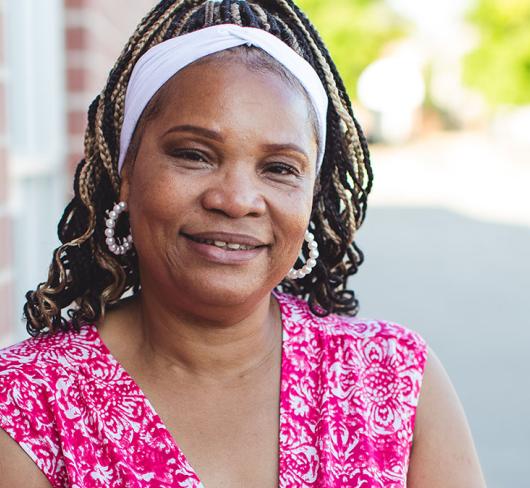
Through African Eyes: The Benin Project - An International Partnership to Promote Early Years Education
ETFO is a recognized leader in early years education. as part of ETFO’s partnership with Right To play, executive staff officers Joan Littleford and Dr. Anne Rodrigue are working with Benin educators and administrators to improve the country’s education program for young children.
The West African country of Benin is one of the poorest in the world. Illiteracy rates are high, especially among women. Schooling for young children begins at age three, but only about a third of children attend. Girls as young as six leave school to care for their younger siblings, thus perpetuating educational challenges for women.
Classes are large, ranging from 50 to 75 children per teacher. Classroom resources are in short supply. Many teachers of young children have not received training in the pedagogy of early learning.
We are working in partnership with Right To Play; the Benin Ministry of Education through INFRE (Institut National pour la Formation et la Recherche en Éducation); and the teacher union, SYNAEM-Benin (Syndicat national des enseignants de la maternel).
In the first phase of the project, six delegates from Benin and one from Rwanda came to Canada to meet with Right To Play, develop plans for changes to their early childhood curriculum, and visit Canadian schools. We spent three days helping these representatives develop an understanding of the current research in early years education, the importance of play-based problem solving for young learners, appropriate teacher pedagogy and assessment practices, and the principles of adult learning and reflective practice. While here, participants developed a resource to support teacher training back home.
Last fall we spent 17 days in Benin supported by Right To Play, helping to train inspectors and consultants, ECE principals, and teachers. We met with government and education officials, as well as Right to Play, Benin, and we were involved in delivering a variety of professional learning activities as we designed a series of training models that could be used as the project expands.
This is a challenging project, particularly in relation to teacher training.
Teachers do not have the curriculum or the resources to support play-based learning. Resources familiar to Canadian teachers such as read-aloud books, shared reading books, math manipulatives, and appropriate science materials are virtually nonexistent.
Education officials in Benin were eager to have ETFO involved. We have the expertise they need – in pre-service and in-service teacher education, curriculum development in ECE, parent outreach, and in finding resources.
The ETFO partnership model used in Benin could be adapted to other sub-Saharan countries; already the Rwandan government has expressed interest in a similar initiative.
During the past several months, we have worked to find additional partners and funding sources to support the work in Benin. We are collaborating with Dr. Stuart Shanker, a world-renowned researcher in early years education, in an effort to create a research centre on early childhood education in Benin.
In the future we hope to develop additional resources to use for training and in classrooms, implementation models, and a research framework. We hope to provide more professional learning to help teachers build on the success they have achieved to date and to help them reflect on the challenges of using a play-based program.
We learn from our Benin partners as much as they learn from us. Our participation helps place ETFO at the centre of research on early child development. In particular, we are learning how to expand teacher knowledge and skills in countries where resources are scarce. It helps us to understand and focus on the essential – the power and promise of early years education.

